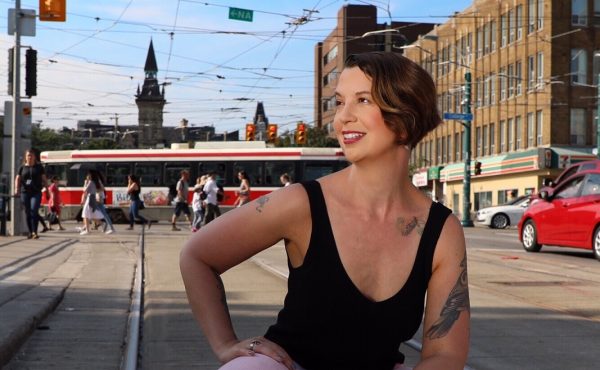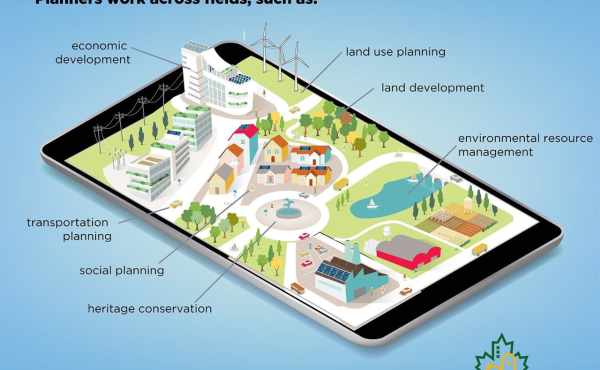
[Editor’s Note: This is the first of a two-part series focusing on the 2012 CAPS Conference that occurred in Vancouver in February. ]
The beginning of February marked the 2012 edition of the Canadian Association of Planning Students (CAPS) conference in Vancouver, BC. This year the conference was hosted by the School of Resource and Environmental Management (REM) at SFU and brought together students and presenters from across North America to discuss a number of important issues pertaining to the urban environment. Aside from a number of tours and smaller events, many of the keynote speakers—Brent Toderian, Gordon Price, Julien Agyeman, and Larry Beasley, in particular—were a great highlight of the conference and their wise words are worth summarizing for those who didn’t have the opportunity to attend.
The conference started with former Vancouver Planning Director Brent Toderian making an appearance during a panel on the Cascadian Experience that included speakers from Victoria, Seattle and Portland. Brent opened wryly by asking the student audience “So, how’s your week been?” in a nod to his recent media exposure about his early contract termination. So much of the conference was inspiring and encouraging for a new generation of planners and Brent closed with a bit of wisdom “If you’re too afraid to lose your job to do your job, you are not going to do a good job.”
Gordon Price was the first keynote speaker. Price is a prominent Vancouver urbanist, director of SFU’s City Program and a regular contributor to Spacing Vancouver Magazine. Price spoke of planning for “unknown knowns”, variables that we cannot imagine, but must account for. The future contains many “unknown knowns”, many things that we have to be adaptable to and cannot plan for specifically, but will potentially require radical change.
In his opinion, future planners need to make room for such events without being constrained by comfortably aging baby boomers. As the last generation to have access to all the good resources, this generation may be tough to change in terms of the status quo. As a baby boomer himself, Price warned the room of future planners not to let this generation get away with too much and not to let their style of comfortable living make life harder for new generations.
Day two included keynote Julien Agyeman, a professor of planning and environmental policy at Tufts University Boston Medford. Agyeman provided one of the most interesting outlooks on planning in terms of social capital. Much of Agyeman’s speech was geared towards social quality and the importance of happiness—a simple thing that tends to get lost or ignored in day-to-day planning. Agyeman reminded participants that the purpose of planning is to help people live better lives and build stronger communities.
In London, the typical park bench sits four people: two parents and two children. However, many neighbourhoods have seen an increase in immigrant families, which poses a challenge for the old park bench. In many cultures, the immediate family is much more than parents and children. One must think about grandparents, aunts, uncles and cousins, as well. When considering the design of the standard park bench from the immigrants perspective then, the question of where everyone sits becomes significant. The answer to this question, and others like it, will have to be part of future community plans.
The final keynote speaker on the last day was former director of planning Larry Beasley. As many know, Beasley was the director of planning prior to Brent Toderian and has since become internationally recognized for his work here and abroad. Beasley stated that he thinks Canadian planners are poised to shape the worlds cities. Canada has a long tradition of good city building and many Canadian planners already know that the process of urbanism is changing.
Beasley warned that the battle for sustainable cities will be fought in the suburbs and that planners should focus on making the suburbs better by selling urban density and making it chic, rather than decrying them. In his opinion, developers are not ignorant, but constrained by antiquated standards and bylaws. New planners need to work towards smart growth models that focus on invisible density, pre-war streetcar neighbourhoods and knowing that the most significant way people express themselves in the market is as consumers.
Beasley continued by stating that some people live in the suburbs because they want to. As such, part of a future planner’s role is going to be to make people want to live in denser neighbourhoods, selling smart growth to foster change. It may not be easy, but he believes that Canadian planners are up to the task.
The main message that came out of the three day conference was that the world is changing, and new planners are going to be in a position to facilitate and shape a lot of that change. New planners need to engage with their communities, keep an open mind, be patient and never stop learning. The REM students at SFU spent nearly a year putting this conference together and the outcome was very inspiring and successful.
Join us this Wednesday when Cameron Barker discussed some of the tours that took place at the CAPS 2012 Conference.
***
For more information on the CAPS conference and news on next year’s event be sure to visit their website: http://caps-aceau.org/
**
Andrew Cuthbert is a geomatics technician working in environmental consulting. As an urban planning enthusiast he hopes to pursue graduate to school in the near future. Andrew is also a 365 day per year cyclist.



